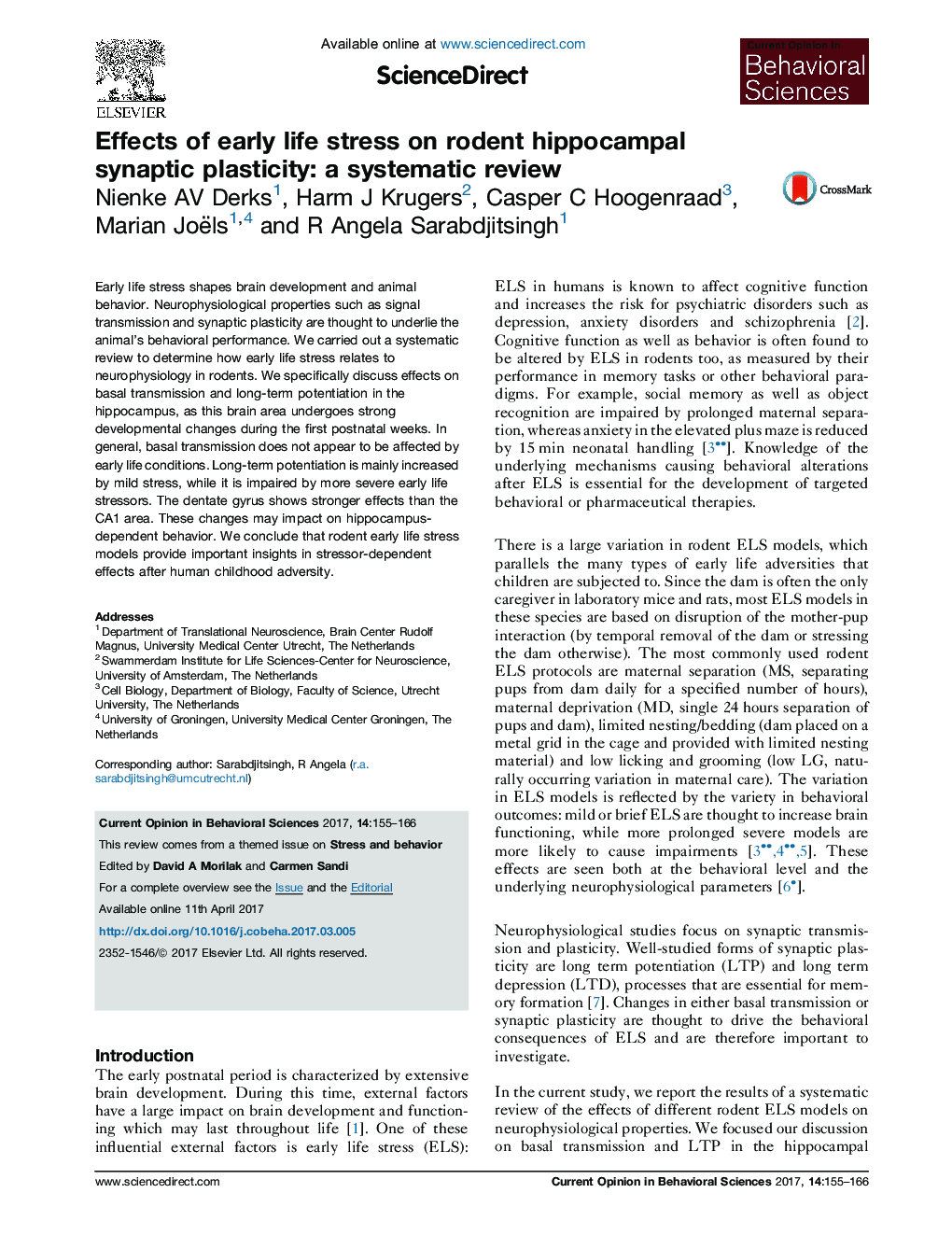| Article ID | Journal | Published Year | Pages | File Type |
|---|---|---|---|---|
| 5735920 | Current Opinion in Behavioral Sciences | 2017 | 12 Pages |
Abstract
Early life stress shapes brain development and animal behavior. Neurophysiological properties such as signal transmission and synaptic plasticity are thought to underlie the animal's behavioral performance. We carried out a systematic review to determine how early life stress relates to neurophysiology in rodents. We specifically discuss effects on basal transmission and long-term potentiation in the hippocampus, as this brain area undergoes strong developmental changes during the first postnatal weeks. In general, basal transmission does not appear to be affected by early life conditions. Long-term potentiation is mainly increased by mild stress, while it is impaired by more severe early life stressors. The dentate gyrus shows stronger effects than the CA1 area. These changes may impact on hippocampus-dependent behavior. We conclude that rodent early life stress models provide important insights in stressor-dependent effects after human childhood adversity.
Related Topics
Life Sciences
Neuroscience
Behavioral Neuroscience
Authors
Nienke AV Derks, Harm J Krugers, Casper C Hoogenraad, Marian Joëls, R Angela Sarabdjitsingh,
